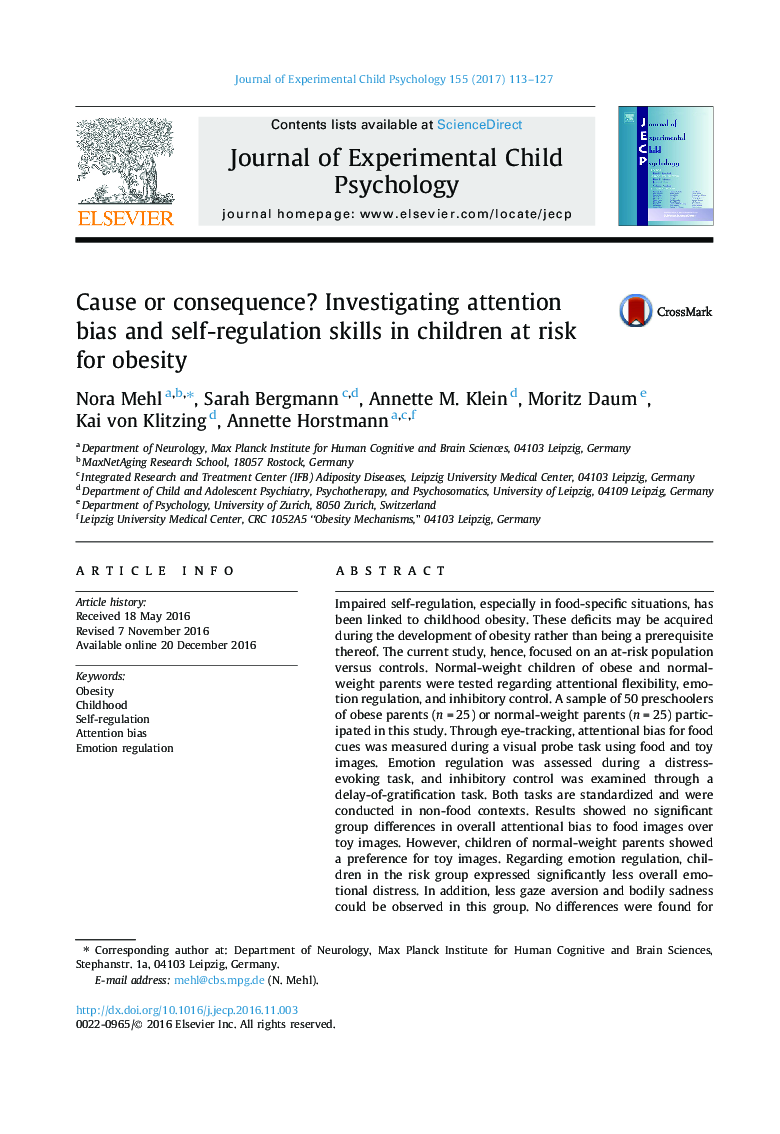| کد مقاله | کد نشریه | سال انتشار | مقاله انگلیسی | نسخه تمام متن |
|---|---|---|---|---|
| 5040076 | 1473457 | 2017 | 15 صفحه PDF | دانلود رایگان |
- This paper compares a population at risk for obesity with normal-weight controls.
- Attentional flexibility, emotion regulation and inhibitory control were examined.
- Only children of normal-weight parents showed a preference for toy over food images.
- Children at risk for obesity were generally less emotionally expressive.
- Results of this study may contribute to the improvement of prevention strategies.
Impaired self-regulation, especially in food-specific situations, has been linked to childhood obesity. These deficits may be acquired during the development of obesity rather than being a prerequisite thereof. The current study, hence, focused on an at-risk population versus controls. Normal-weight children of obese and normal-weight parents were tested regarding attentional flexibility, emotion regulation, and inhibitory control. A sample of 50 preschoolers of obese parents (n = 25) or normal-weight parents (n = 25) participated in this study. Through eye-tracking, attentional bias for food cues was measured during a visual probe task using food and toy images. Emotion regulation was assessed during a distress-evoking task, and inhibitory control was examined through a delay-of-gratification task. Both tasks are standardized and were conducted in non-food contexts. Results showed no significant group differences in overall attentional bias to food images over toy images. However, children of normal-weight parents showed a preference for toy images. Regarding emotion regulation, children in the risk group expressed significantly less overall emotional distress. In addition, less gaze aversion and bodily sadness could be observed in this group. No differences were found for inhibitory control. Findings suggest that general deficits in self-regulation are not yet present in normal-weight children at risk for obesity. Instead, they might develop as a by-product of unhealthy weight gain. Results indicate, however, that children of obese parents are less emotionally expressive compared with children of normal-weight parents. Furthermore, children of normal-weight parents appeared to be more interested in toy images than in food images.
Journal: Journal of Experimental Child Psychology - Volume 155, March 2017, Pages 113-127
